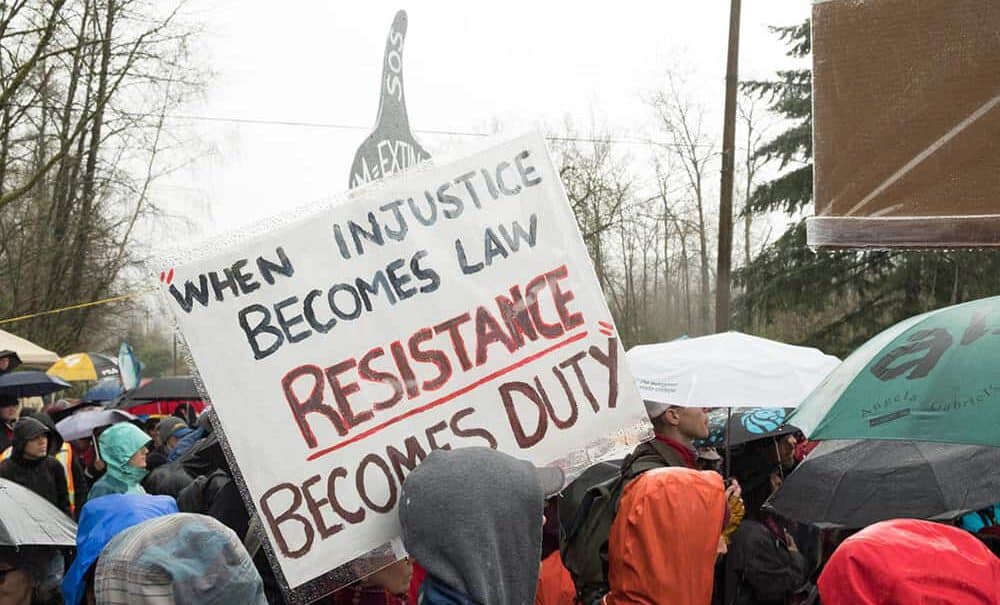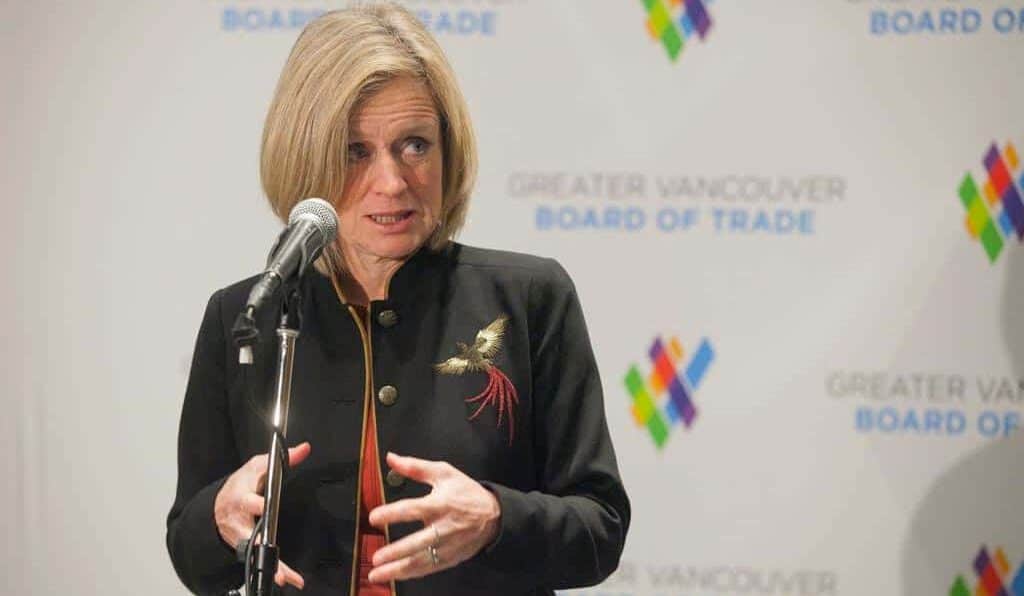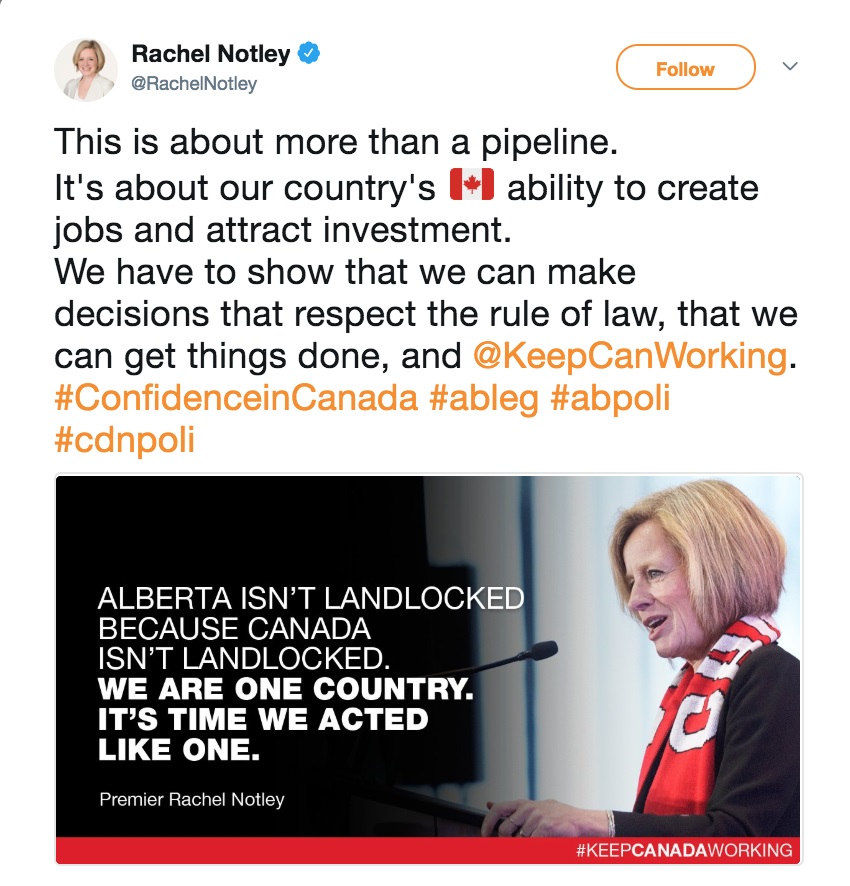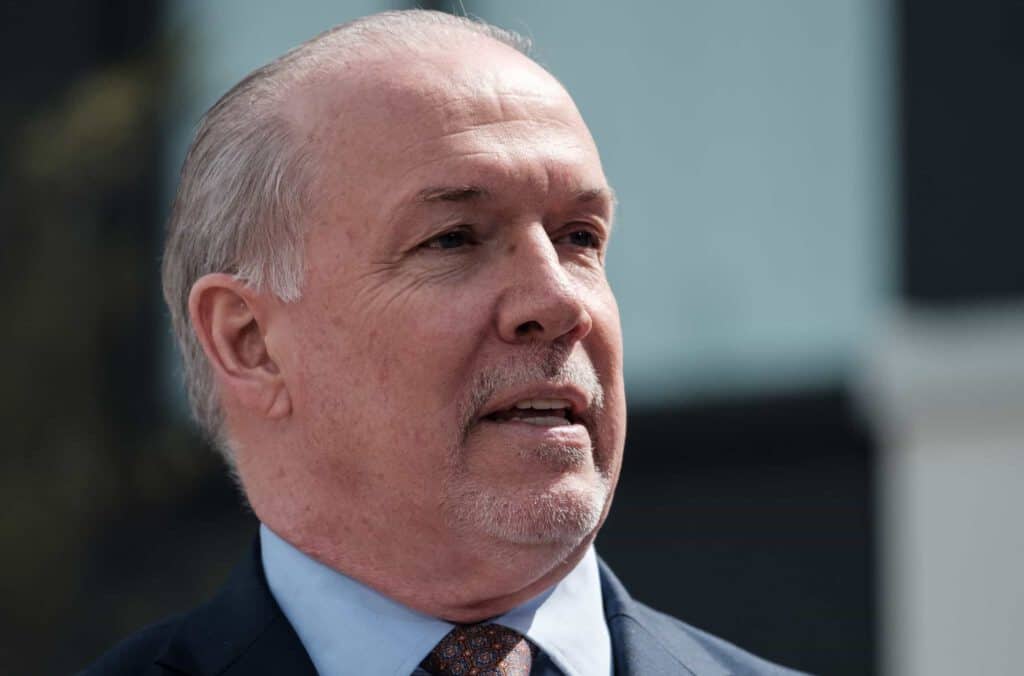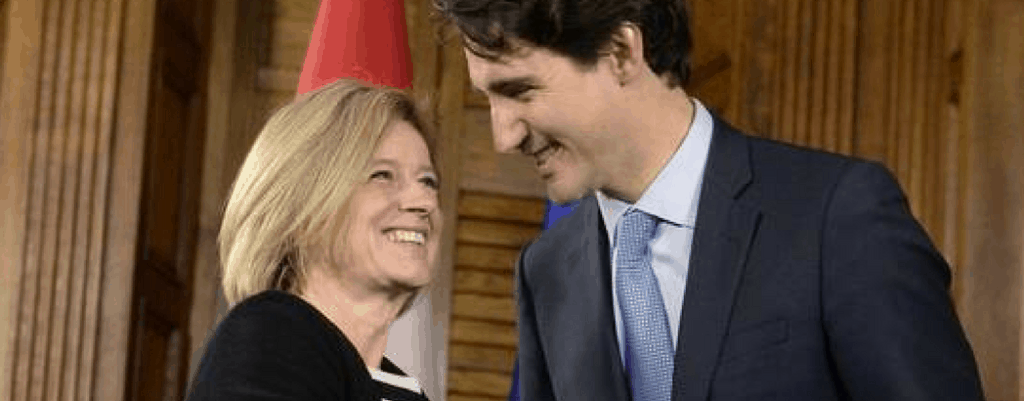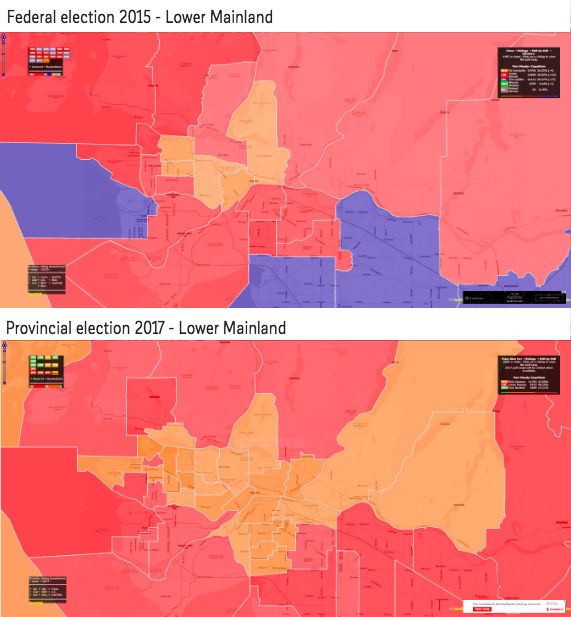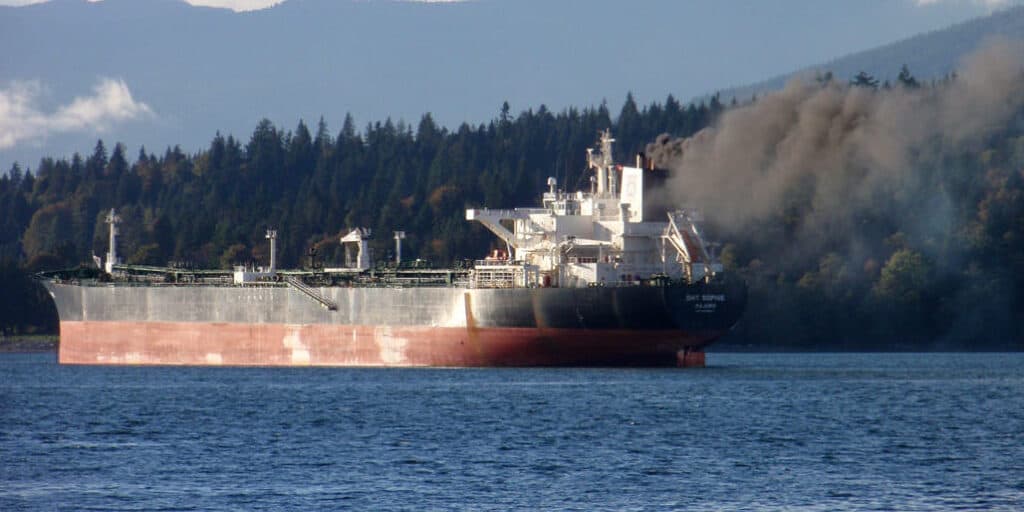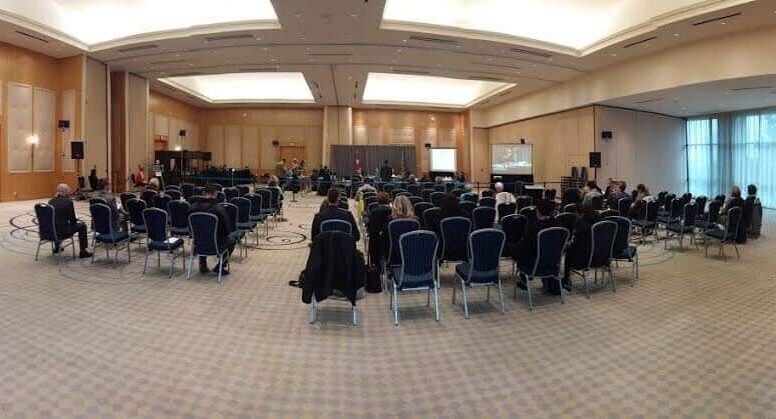Kinder Morgan and the Power of Civil Resistance
Citizens can shine a spotlight on bad laws or draconian consequences. Second of two parts.
Canadians are a law-abiding people. Unlike our southern neighbours, our mythology isn’t filled with scandalous rogues who operate at the edges, or outside, the law. Who are the Canadian equivalents to Jesse James, Al Capone or Bonnie and Clyde? Frankly, I can’t think of a single one.
The same is true with modern Canadian politicians. Is there a Canadian equivalent to Richard Nixon, Spiro Agnew, or Huey Long? No one jumps out. With the exception of the Ford brothers, Canadian history isn’t filled with rogue politicians who flout the law. That is, until Kinder Morgan came along.
Canada has become a petro state. It is time we come to grips with this as a nation. We have a litany of examples of both provincial and federal politicians playing fast and loose with the rules to force an unwilling oil tanker pipeline project on an unwilling province.
How far will they go? Pretty far!
Harper gutted environmental laws, illegally spied on groups opposing oil and gas projects, and tried to demonize opponents by calling them foreign radicals.
A succession of Alberta premiers have huffed and puffed until Rachel Notley crossed the line by proposing to impose illegal trade restrictions on exported oil and imported B.C. wine. Justin Trudeau lied about Kinder Morgan to win votes in B.C., only to betray his commitments once in power as prime minister. Now we learn of evidence that Trudeau’s government threw the rule of law out the window and rigged the process to fast track and guarantee Kinder Morgan’s approval. What’s clear is this: politicians have cynically pontificated about the “rule of law” while bending the rules to force Kinder Morgan through.
Many Canadians have bought the propaganda — but in British Columbia? Not so much.
Why is the rule of law so important? Because it’s the fundamental building block of democracy. But democracy is fragile, and its long-term health depends on the complex interplay and integrity of a wide range of institutions: police; courts; political parties; non-partisan civil servants; independent regulators; and legislatures — all who seek justice and pursue truth wherever the evidence may lead. Each of these institutions must be perceived as genuinely independent and not beholden to private interests. They each must be impartial, loyal to the public interest, and obedient to the rule of law. They not only enforce rules; they must follow those rules themselves.
That clearly hasn’t been the case with Kinder Morgan. Luckily the rule of law does not just belong to the realm of politicians, legislatures, ministers and the courts; citizens have a role to play as well.
In Canada’s western-most province, the aggressive language and underhanded tactics from the eastern side of the Rockies are inspiring an unprecedented number of British Columbians to step out of their comfort zone and stand together against an unjust process.
While politicians and pundits pontificate, people are organizing. Whether they are concerned about runaway global warming, Indigenous rights, oil spills, or the inherent right of people to decide their own future, British Columbians are coming together to ensure Trans Mountain never gets built.
What the people of British Columbia know is that, if all else fails, as law-abiding citizens they can resort to civil disobedience — or, as I prefer, “civil resistance.” Anyone with a marginal understanding of history knows civil resistance is a critical political tool.
The power of civil resistance lies in the debate it generates about the law and the moral justification of violating it. By defying a societal norm, and being willing to suffer the consequences, citizens shine a spotlight on bad laws or draconian consequences and seek to bring them into disrepute while catalyzing others to stand against them.
Civil resistance, when properly employed, is not a publicity stunt; it is a solemn act of citizenship. It has a distinguished history. That history tells us that engaging in civil resistance is in fact a celebration of the “rule of law.”
To be effective, civil resistance cannot be engaged in lightly. It has to be widely perceived as a “reasonable” response, undertaken only after exhausting all other options.
Ironically, the patently unfair federal and provincial processes behind the Kinder Morgan rubber-stamp, combined with the recent bully tactics from Alberta and Ottawa, are convincing tens of thousands of concerned British Columbians (as well as climate and Indigenous activists from around the world) that civil resistance is the only reasonable response to an ongoing injustice. People outraged by these injustices are worried that their provincial government may not have strong enough tools to defend British Columbia’s interests from out-of-province bullies, but despite this, they are willing to risk arrest to stand up for their province, Indigenous rights, and the climate.
Canadians generally don’t like conflict. But when they see a wrong that goes to the core of their values, they will stand up for what they see as right. If we have learned anything from the No Tankers struggle over the last decade, it’s that the more British Columbians learn about any particular oil export proposal, the more likely they are to oppose it. The same seems to be happening with the Kinder Morgan pipeline: the people who are standing against the pipeline do not see themselves as law-breakers; they see themselves as defenders of their most cherished values, including the rule of law. They are holding government to account.
The Grand Canyon–sized gap between the aggressive pro-pipeline rhetoric and the reality is fuelling increased outrage from concerned citizens opposed to Kinder Morgan. It is pushing increasing numbers of people to the blockade. As of now, around 200 protesters have been arrested and reportedly more than 20,000 people have pledged to join them.
From the outraged hyperbole frothing from Alberta and Ottawa, you would think these Coast Protectors were black-masked anarchists wielding Molotov cocktails, not the clergy, scientists, grandparents, and elders singing and praying for reconciliation while being arrested. These protectors are not going away. They will not be deterred by threats. The massive exercise of state power that will be required to remove them from the gates could change the political landscape for a generation.
Elections are also included in the Canadian democratic system of accountability and laws. History shows that being a pro-pipeline candidate in tidewater ridings in British Columbia is a liability. Stephen Harper’s Conservatives learned this first-hand when they not only ignored — but actively provoked — the groundswell of opposition to the oil tanker-pipeline proposals. The Harperites thought they could bully their way to another majority government in 2015. However, anti-tanker, pro-democracy organizations had something to say about that, actively organizing in tidewater ridings to dramatic effect: Harper’s team lost almost as many votes (82,257) on the west coast as it lost in the rest of Canada combined (85,669).
Trudeau and his Liberal MPs face a similar electoral tsunami. Liberal MPs such as Joyce Murray, Jonathan Wilkinson, Terry Beech, and Jody Wilson-Raybould are particularly vulnerable. To date, they seem more interested in playing follow-their-telegenic-leader than in representing the interests of their constituents. They would be well advised to remember that civil society groups have been organizing in their ridings for years, and have battle-tested their Get Out The Vote machines. Those groups are now working to stop Kinder Morgan, on the ground and at the ballot box.
So, although the mainstream media has largely not connected the dots, to anyone looking closely it should come as no surprise that British Columbians consider Prime Minister Trudeau’s about-face on his pre-election commitments a betrayal of epic proportions. In what appears to be a repetition of Trudeau-the-dad’s maligned National Energy Plan in the 1980s, Trudeau-the-son is going all-in to try and force the unwanted oil tanker pipeline proposal on an unwilling province. He is doing so with new proposed legislation to override provincial health and safety concerns, with billions of dollars in subsidies from taxpayers, and even with threats to call in the military. Nothing appears to be off-limits to Ottawa’s pipeline-evangelizing prince and his minions. I’m surprised Trudeau hasn’t challenged B.C. Premier John Horgan to a winner-take-all boxing match to decide the issue.
Ironically, it is not local protesters who are violating the rule of law. It is Kinder Morgan’s cheerleaders, those who hypocritically pontificate about the rule of law, who actually are undermining it. They do so by trying to pre-empt court challenges, invalidating provincial regulatory processes, and intimidating concerned citizens who are merely exercising their constitutionally protected rights to protest. Those are the actions that threaten the rule of law.
The turmoil will continue until Notley, the oil industry, and Trudeau recognize that there are no shortcuts. British Columbians, municipalities, First Nations, and concerned citizens simply will not accept any oil tanker-pipeline proposals imposed through an unfair process. If British Columbia’s history has taught us anything, all attempts to force Kinder Morgan will continue to be met with stiff and unending resistance.
I’m confident that when it’s all said and done the rule of law will prevail — and that it is unlikely that Kinder Morgan’s pipeline will ever get built.
